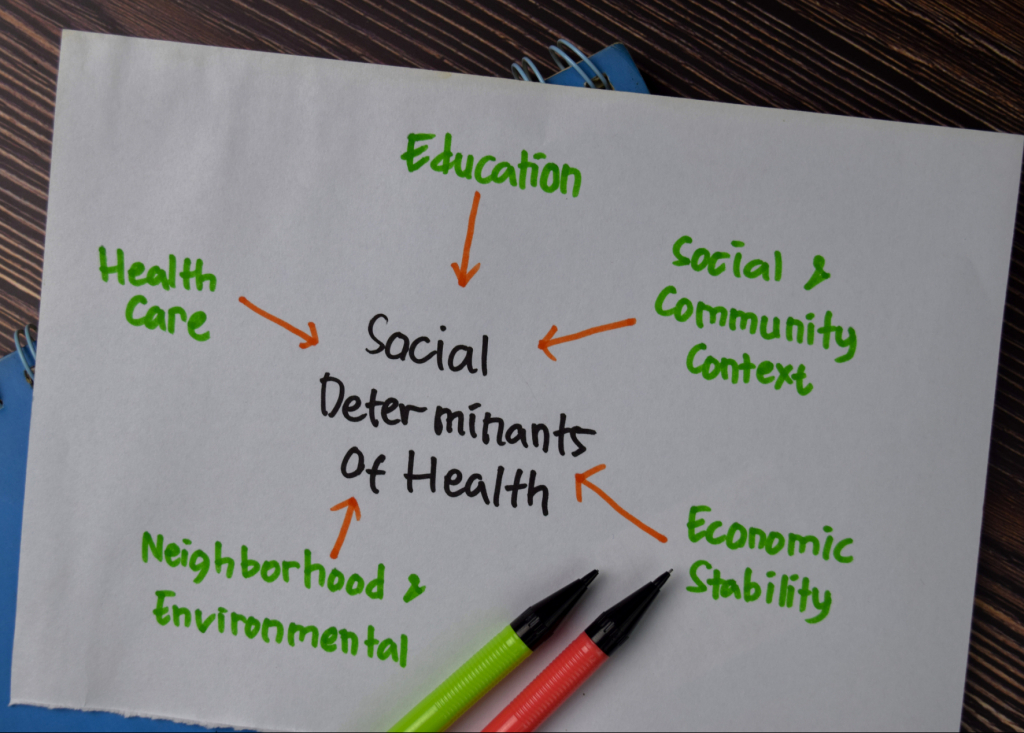How social determinants of health affect your DPC patients

As a direct primary care (DPC) provider, you have a unique connection to your patients. The DPC model enables you to develop a quality patient-provider relationship so you can spend more time with your patients and get to know their specific needs. Do you also know how social determinants of health affect your DPC patients?
Medical care alone accounts for only about 10-20% of the total contributions to an individual’s health outcomes, according to a recent study. Social determinants of health make up the remaining 80-90% of contributing factors to a patient’s health.
There are essentially five determinants of health that factor into the individual patient’s overall health and well-being:
- Healthcare, including access, insurance coverage, and health literacy
- Economic stability, encompassing poverty level, employment status, food security, and housing stability
- Education access, quality, and level of achievement
- Social and community life, including discrimination, incarceration, workplace conditions, and civic participation
- Neighborhood environment, such as the quality of housing, available transportation, access to healthy foods, level of crime and violence, and water quality.
Each of these factors is interconnected as they influence the patient’s health outcomes.
The right direct primary care software for your practice can mean the difference in your ability to provide quality care. Learn more about how to power your practice with Elation’s seamless all-in-one clinical-first EHR, billing, and payment solution.
The economic and social conditions that impact your patients’ lives, as well as your ability to address population health, are shaped primarily by socioeconomic factors. These can include money, resources, and level of influence within the community and are shaped by occupation, income, and education level. Each of these social determinants can potentially impact the health and well-being of your DPC patients.
The Centers for Disease Control and Prevention (CDC) emphasizes that addressing these social determinants of health is the primary approach to achieving health equity. Your DPC patients who experience such social determinants of health as poverty, unequal access to care, racism, a lack of education, or other social stigmas may also experience lower levels of health outcomes because of these inequities.
In contrast, resources that you can provide your DPC patients to enhance their quality of life can have a significant positive influence on their outcomes. Referring patients to resources for safer and more affordable housing, healthier food choices, and access to education can contribute to their overall health and well-being as you continue to provide quality medical care through your DPC practice. Being proactive with your patients regarding their social determinants of health can not only improve their individual health and the population health but can also help advance health equity.
Your DPC technology, including the direct primary care software used by your practice, is one important tool in improving the health and well-being of your DPC patients. Access to the social determinants of health affecting your population health through technology and health information is critical to your ability to provide the overall quality care your patients expect and deserve.
The Department of Health and Human Services Office of Health Policy reports that as of March 2022, approximately 75 percent of physicians use electronic health records (EHRs) certified through the ONC Health IT Certification Program, helping to enable widespread capabilities for the capture, reporting, exchange, and use of granular race and ethnicity data. This functionality will soon extend to the widespread use of interoperable data on social determinants of health that can be electronically captured, used, and exchanged.
Direct primary care software that supports working collaboratively is critical to improving individual and population health, driving innovation in care delivery through the use of tools and standards that integrate data regarding social determinants of health into DPC practice workflows.






